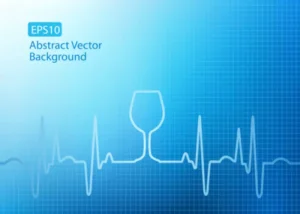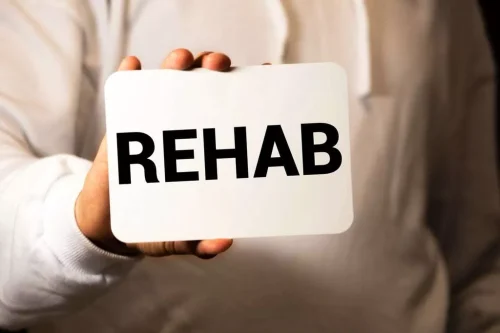How to Taper Off Alcohol to Avoid Withdrawal Symptoms

Once completed, you will receive an email with your benefit details. But, perhaps most importantly, understand that setbacks happen and that progress takes time or may look different than imagined. It is all part of the process, and no one’s process is the same. You may also consider joining an online support group to help you feel less alone. What’s most important is looking at your drinking habits and finding a way to cut back that works for you.
How to Taper Off Alcohol Safely
This can cause seizures and delirium tremens, a severe form of withdrawal marked by tremors and hallucinations. If you taper off alcohol slowly or with medical supervision, the brain has time to adapt without causing severe side effects. The main downside of cold turkey is how unpleasant and risky it can be. If you drink heavily, alcohol withdrawal symptoms can be harsh, dangerous, and even fatal.

Symptoms Of Alcohol Withdrawal
- Before a doctor begins a tapering plan with medications, they will assess the medical stability, including vital sign stability, and pattern of withdrawal symptoms in the patient.
- For example, depression could cause suicidal thoughts, and eating poorly can weaken your immune system.
- Depending on how much you drink, tapering off alcohol can take one to several weeks.
- Alcohol causes serious changes in the brain, and prolonged symptoms such as sleep problems, mood changes and fatigue may take months to overcome, according to the U.S.
- Research has shown that professional help improves your ability to overcome an addiction to alcohol or cut back if you have found it difficult.
Within just a month of not drinking, your body can begin to reap the benefits. Your liver can start to heal, your risks of heart disease and cancer go down, and you may begin to sleep better. If you’re having difficulty sticking to your goal or just want some extra guidance, consider reaching out for professional support. By avoiding alcohol, you’re taking a big step toward improving physical health. As you begin to notice those health benefits, you’ll likely feel more energized and inspired to keep up your progress.
Find out more about our admissions process
If don’t have much of an appetite, you may want to take a multivitamin or drink a beverage high in electrolytes, such as a sports drink. If you take prescription medication, continue to take how to taper off alcohol it as directed. Tapering off alcohol is not the most beneficial option for everyone. People who are severely dependent or addicted to alcohol should seek medical support for alcohol detox.
- GABA is a chemical messenger in the brain that slows activity in the central nervous system so that you can rest, relax, and sleep.
- External triggers are people, places, things, or times that offer opportunities to drink and remind a person of alcohol.
- Maintenance medications (like acamprosate, naltrexone, and others) can help you guard against relapse.
- But, as many in recovery will tell you, it is only the first chapter in a long process.
- If you’ve become dependent on alcohol, you may encounter alcohol withdrawal when you cut back or stop drinking.
The reason for this is that alcohol withdrawal symptoms can quickly snowball and worsen. Mild anxiety, for example, can turn into overwhelming agitation or even hallucinations. When symptoms become that serious, it can be difficult to seek help. Seeking help as early as possible during the withdrawal process is the best way to stay safe as you cleanse your body of alcohol. If you have been drinking heavily for a long period of time, you are at much higher risk of severe withdrawal symptoms from quitting alcohol.
Measure your drinks.

Avoid taking prescription drugs that your doctor hasn’t prescribed to you. If withdrawal is so uncomfortable that you’re turning to drugs for comfort, you should contact your doctor or a rehab center to discuss medically supervised withdrawal. Quitting binge drinking may require different strategies than either tapering or cold turkey.
- Even when using this method to quit drinking, withdrawal symptoms may appear.
- In response, your brain makes more excitatory neurotransmitters (chemical messengers) to counter alcohol’s effects.
- However, certain food groups also have benefits when it comes to helping with the discomfort of withdrawal symptoms and detoxification.
- Ideally, this schedule will be determined with the assistance of a doctor or addiction treatment professional.
- Quitting cold turkey is the preferred method of withdrawal, but only if done under medical supervision, where symptoms can be treated as they occur.
- However, for many people with alcohol use disorder, tapering off alcohol is a far better experience than quitting abruptly.
- Essentially, when an individual drinks, the brain amplifies certain activities to counterbalance the depressive effect alcohol has on it.
Tapering can help minimize these symptoms, but you might still experience some of them while your body adjusts to the lack of alcohol. Nanci Stockwell of Advanced Recovery Systems discusses the risks of detoxing at home and the benefits of detoxing from alcohol and other drugs in a safe environment. Tapering can help you overcome alcohol dependence, which is a side effect of chronic alcohol use that causes cravings and withdrawal. Detox doesn’t treat addiction, which is a disease characterized by compulsive behaviors, such as chronic alcohol use. For mild allergic reaction symptoms, such as a mild rash, call your doctor right away. They’ll also let you know whether you should keep taking the medication.

To avoid or reduce the impact of the withdrawal symptoms, people struggling with alcohol may choose to progressively taper off alcohol rather than quit abruptly. For people who experience mild alcohol withdrawal symptoms, there are safe ways to detox at home. People who experience tremors, shakes or confusion when they quit drinking should consider medically supervised detox. You should talk to a doctor about the safest way to detox if you experience any withdrawal symptoms when you stop drinking. When coming off drugs or alcohol tapering is the best way to prevent severe withdrawal symptoms.

Drinking Triggers
Alcoholism is linked to many chronic diseases, including heart disease, liver disease, and certain cancers. Chronic, heavy drinking can significantly increase your risk of serious illness and premature death. Unless an AUD is addressed, the health problems drinking causes may be unstoppable. “Once you have a sense of how much you’re drinking, it’s helpful to track how many drinks you’re having per day,” says Witkiewitz.
If you or someone you know is quitting alcohol and experiences seizures, DTs, hallucinations, or other major effects, seek immediate medical attention or call 911 for help. Tapering off is a standard medical practice for many other drugs. Tapering off alcohol involves gradually reducing the amount of alcohol you drink. Besides its positive health benefits, it can help you quit drinking after weeks or months. Alcohol withdrawal is potentially fatal, especially for people with an alcohol addiction.

